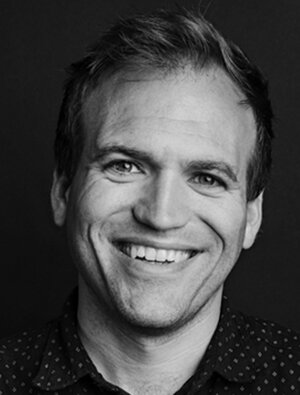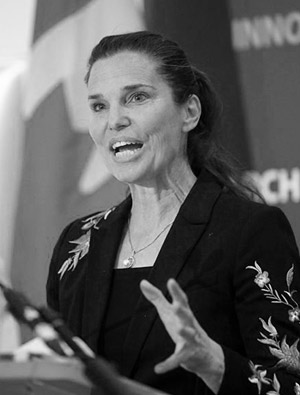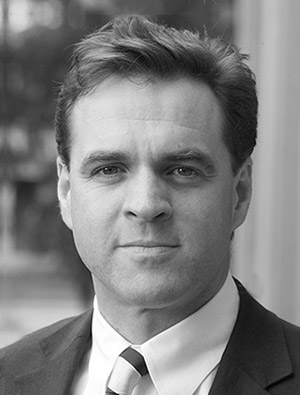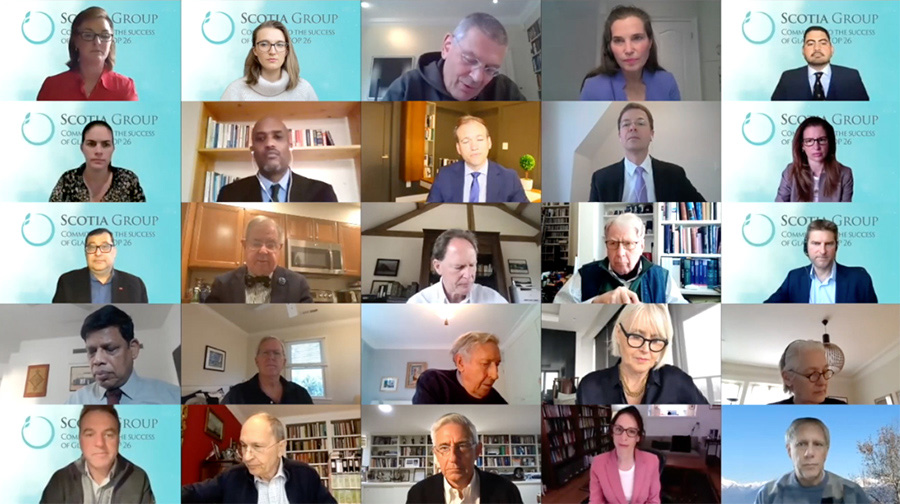What is to be done?
The year is 1970, and the issue of climate change is a small cloud on the horizon
It’s a matter for special interest groups, really – such as the activists who persuade the United Nations to hold its first Earth Day and the scientists who found the National Oceanic and Atmospheric Administration as America’s “intelligence agency for the environment”.
Over the next 30 years the data accumulates, satellite images are examined and calculations lead to projections. The best cases are bad, the worst cases calamitous, and as far as timetables go, it’s later than anybody had thought.
The first global body to be formed was the Advisory Group on Greenhouse Gases, set up in 1985 by the UN’s Environment Programme. Three years later, this became the Intergovernmental Panel on Climate Change, the Geneva-based organisation that has taken the lead in bringing climate science into the mainstream and establishing the anthropogenic signal in the mass of meteorological noise.
The establishment of that consensus then led to a reconfiguring of traditional politics as green lobby groups turned into green parties, fired with the anger and engagement of young activists. Over the years, that energy has propelled the question of sustainability in all its forms to the centre of political discourse.
Unfortunately, simply sounding the alarm does nothing to solve the myriad of problems that climate change throws up. Although it’s clear that the skies are darkening as we watch, how should we respond to a threat that requires global action on the political, scientific, technological, social and economic levels? How can we even develop the capacity to? Our experience with the Covid-19 pandemic is a preview of the global crises we face in managing and co-ordinating that action before the storm breaks – and without the spur of collapsing health systems.
The problem is immense, we only have one last best chance to solve it, and time is passing…
The Scotia Group was set up to make a contribution to finding that solution. More specifically, it was aimed at COP26, the 26th United Nations Climate Change conference (to be hosted by the UK government in Glasgow in November 2021). The aim is to bring together humanists from as many domains as possible to reach a consensus on how the world’s political leaders can agree strategies to curb carbon emissions in the years that remain before we all arrive together at the point of no return.
The group will hold seven meetings/dialogues in the run-up to COP26, and we will issue a report after each to outline what has been agreed. The first was held online on the 21 April under the auspices of the Transatlantic Leadership Network (TLN), and addressed the foundational issue of how a multitude of diverse groups and interests among governments, corporations and communities can be reconciled in the same framework.
The Speakers
Howard Covington
Howard Covington, a physicist and investment banker, and member of the Scotia Group’s Inception Commission, gave a concise explanation of what this framework has to achieve: halving global carbon emissions by 2030. Anything less would be, in his words, yet another step on the road to a hot, sour, stormy, flooded, burned and barren world.
Biography
Howard Covington
Howard Covington is the chair of ClientEarth, Europe’s leading public interest environmental law firm and of the Alan Turing Institute, the UK’s national institute for AI and data science.
During his career in investment banking and asset management, he was European chief executive of Wasserstein Perella, an investment bank and co-founder and chief executive of London-listed New Star Asset Management.
He has been a trustee of the Royal Institution and chair of the Isaac Newton Institute for Mathematical Sciences, the UK’s national institute for mathematical research

Firstly, there are the agreements that have been at the heart of previous climate summits: binding, quantified commitments to reduce greenhouse gas emissions. Since this is more feasible for developed economies, this should be done by coalitions of the willing and able.
Regulatory targets can be backed up by market mechanisms such as carbon pricing and carbon border taxes, both areas in which the EU has shown leadership, and where the US can add its economic heft. And market mechanisms should be adjusted so that clean technologies are affordable for developing countries – a logical rather than an altruistic goal, since carbon reduction anywhere benefits everyone everywhere.
A special case are the hydrocarbon economies who have a vested interest in maintaining fossil fuel use: they should be encouraged to invest their resources in hydrogen production, as well as wind and solar energy.
Reverend Johnnie Moore
The first main speaker of the event was Reverend Johnnie Moore, President of the Congress of Christian Leaders. He has made a point of amplifying the voices of unconventional and marginalised groups and individuals, who spend just as much time thinking about the climate issue as do the conventional and the well-platformed. These include activists, evangelicals, scientists and the intensely bothered. They should be able to make a contribution without being side-tracked by the political distrust so common between people who, as it were, drive bulldozers and those who lie down in front of them.
Biography
Reverend Johnnie Moore
Reverend Johnnie Moore is founder and CEO of The KAIROS Company and President of The Congress of Christian Leaders.
He served as Chaplain at Liberty University before becoming Chief of Staff and Vice President of Faith Content for the United Artists Media Group in Hollywood.
He is an advocate for religious freedom in the Middle Least, and in 2017 participated in the drafting of the landmark Bahrain Declaration on Religious Freedom and Peaceful Coexistence in the Middle East.

Dr Kirsty Duncan
The second speaker was to take the floor, was Dr Kirsty Duncan, Deputy Leader of the Government in Canada’s House of Commons. Her message: we have nine years to avert the worst consequences of the climate crisis. This means that 2021 can be reclassified as T-minus-nine. This deadline has created a sense of urgency among young people, as the spontaneous Extinction Rebellion demonstrations showed in 2018 (or T minus 12).
It is not necessary to be an advocate of civil disobedience to see that this level of engagement is valuable, and Ms Duncan stressed the importance of incorporating the voices of the youth – from all backgrounds, cultures, orientations, and abilities – in the decarbonisation plan.
Biography
Dr Kirsty Duncan
The Honourable Kirsty Duncan is Deputy Leader of the Canadian Parliament and has been a Member of Parliament for Etobicoke North since 2008.
Kirsty served on the Intergovernmental Panel on Climate Change, an organization that was jointly awarded the 2007 Nobel Peace Prize with Al Gore.
Kirsty was an associate professor of health studies at the University of Toronto Scarborough, and an associate professor of geography at the University of Windsor.

This point leads to the need to fight climate change at community level and in the domain of everyday life, where cycling and recycling are both encouraged, and children do not go to school with asthma inhalers in their lunch boxes.
A healthy environment is a basic human right.
It is also something that communities can design themselves, and pass what they’ve learned on to others – if they are given the voice and tools to act. Glasgow is a chance to move from design to delivery.
Professor Niall Ferguson
The last of the speakers was Professor Niall Ferguson, renowned historian and a senior academic at the academic holy trinity of Stanford, Harvard and Oxford. He noted that the Fifth Assessment Report of the Intergovernmental Panel on Climate Change found that the worst-case scenario – in which emissions continue to rise throughout the 21st century – has grown more probable, because only a handful of countries are on track to meet the Paris emission reduction targets.
Biography
Professor Niall Ferguson
Professor Niall Ferguson is the Milbank Family Senior Fellow at the Hoover Institution, Stanford University, and a senior faculty fellow of the Belfer Center for Science and International Affairs at Harvard.
He is the author of sixteen books, and an award-making filmmaker having won an international Emmy for his PBS series The Ascent of Money.
In addition to writing a regular column for Bloomberg Opinion, he is the founder and managing director of Greenmantle LLC, an advisory firm.

He outlined two fundamental points that, in his opinion, do not receive sufficient attention in the climate change discourse. Firstly, we should disregard the extremists in the environmental movement. We are unlikely to achieve a workable consensus if we attempt to meet unrealistic carbon targets under the pressure of an impending apocalypse. There is more than one way to wreck an economy, and as the Covid-19 pandemic has demonstrated, an end to economic growth means an end to employment and the start of serious social disruption.
Secondly, we have to consider whether China can meet its target of becoming carbon neutral by 2060. Its credentials as a world-beating maker of wind-turbine and solar panels is matched only by its success in building coal-fired power stations. This matters because China contributes nearly half of the increase in global emissions since the 2015 Paris Agreement, whereas emissions from the EU, the UK, and the US have been declining.
Dr Sailele Malielegaoi
Finally, a special message was delivered from the former Prime Minister of Samoa, the Honourable Tuilaepa Dr Sailele Malielegaoi. Of all the future victims of climate change, none are more innocent than the Pacific islanders, who produce negligible carbon but face existential threats within a generation. Dr Sailele Malielegaoi stressed the importance of financing the advanced infrastructure that will be required for the energy transition, since the uptake of renewable energy is not increasing at the scale and pace needed to save the thousands of island from inundation.
He concluded by urging the international community to revise principles of development cooperation and create pathways to sustainable financing for developing countries through the climate and social agenda. If any crumbs of comfort are to be found in the long agony of the coronavirus, it is that we have learned the importance of international cooperation, and how much we need to do to achieve it.
The climate majlis
The closed session that followed the public dialogue was attended by 30 members and observers of the Scotia Group.
This majlis – taken from the Arabic term for council of deliberation – explored some of the ideas raised in the public session.

For practical action, combination of short and long-term planning is necessary. We have to pace ourselves, because it is just as easy to overestimate what can be achieved in one year as it is to underestimate what is achievable in 10. There was an additional view from the private sector calling for greater corporate involvement in global climate action. It was proposed that the involvement of institutions, actors and ideas were as necessary as that of technology, policy and consumers.
This is not simply a question of more money: the renewable systems from the turbine to the plug socket needs to be more innovative and inclusive
The open discussion emphasised the need for legally binding targets – governments should be open to judicial challenge if they fail to keep their commitments, and they should be sufficiently transparent about their progress to make this possible. This gives lawyers and judges important roles in the struggle against climate change. How sure are we that the legal sector is ready to become involved – from the expertise of judicial officers to the adequacy of case law?
Greater investment is required in the renewable generation, smart distribution, innovative storage systems and action to cut consumption. This is not simply a question of more money: the renewable systems from the turbine to the plug socket needs to be more innovative and inclusive.
Although the EU Green Deal was lauded, we need a climate investment mechanism that can be extended to cover all major sources of carbon.
The bullet points
- COP 26 in Glasgow marks T-9. Unless urgent global and substantial commitment and action to halve carbon emissions by 2030 is undertaken, changes at a geological scale could be triggered.
- We must establish legally binding commitments for climate action.
- Legally binding commitments would need to be monitored and enforced.
- Relevant legally binding instruments for climate action need to be promulgated to deliver genuine change on the ground for communities around the world.
- New institutional architecture and innovative finance instruments to support climate mitigation, adaptation and resilience measures need to be formed.
- Developing an international framework for carbon price and carbon border tax are imperative.
- The EU is leading on carbon pricing and border adjustments and needs international support.
- One potential pathway in Glasgow is for a coalition of the willing taking the lead by signing a new ambitious pact, with mechanisms to assist those who are supportive but lack the resources to sign onto new ambitious commitments.
- Focusing on actors that are responsible for the highest impact is just as important as giving a platform to the smallest, most vulnerable, and/or marginalised voices.
- New and more effective principles of development cooperation and sustainable financing for developing countries should be formulated.
- More advanced countries should assist less-developed ones in climate mitigation, adaptation, and resilience strategies.
- These should include accelerated clean technology transfer.
- The development of affordable and scalable technologies is imperative.
- Accelerating the “Just Energy Transition” is pivotal to meeting the 2030 target.
- State and non-state actors in the coal and oil industries should be included in the transition and should be encouraged to reinvest their fossil fuel wealth in clean energy ventures.
- Climate change requires international consensus building as a cornerstone for global climate action.
- International cooperation for climate mitigation, adaptation and resilience faces complex challenges that need greater diversity, equity, inclusion and justice in consensus building.
- Partisan and binary perspectives in climate discourse may be a hindrance for climate action (exclusion of oil producing countries, overlooking small or developing countries, hinging climate decisions on political party or religious persuasions, and so on).
- Oil producing countries should take cognizance of T-9 and take action towards halting production.
- Carbon circular economies should be part and parcel of global climate action.

